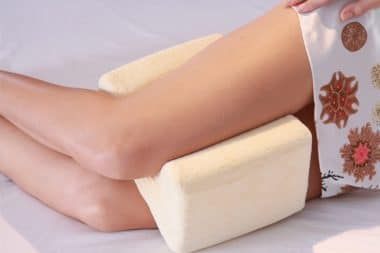Shoulder tendonitis is the inflammation of the tendons around the shoulder”s rotator cuff and upper bicep area. Shoulder tendonitis is usually developed by sports and activities that require you to lift your hands above your head repeatedly. Common activities that often lead to shoulder tendonitis are strength training (bodybuilding), some certain swimming strokes, racket sports like squash and tennis, cricket and any manual job that requires lifting of items over the shoulders.

So how do you know if you are developing shoulder tendonitis? As mentioned above, the first sign of tendonitis developing is the pain in the shoulder when it”s under pressure. If you feel a pain in your shoulder when you are lifting heavy weights and playing sport this is usually a sign that tendonitis is developing.
The first (and most obvious) step to take is stop doing whatever activity is causing the pain in your shoulder. We recommend that you stop this activity for at least one week. After that week, you should attempt lifting some very light weights to see if the pain is still occurring. If the pain does not occur, then it is likely that you simply strained your shoulder muscle or in more serious cases damaged the tendon temporarily. In this case you should ease back into the activity. If the pain does occur, it is likely that you have developed mild shoulder tendonitis.
Now that you have identified that you have tendonitis in your shoulder you must rest it once again. This time rest it for about three weeks. During this three week period you should not partake in any activity that may strain your shoulder. This includes light lifting and sports.
After that three weeks is up it is time to start to strengthen the shoulder to prevent the tendonitis. There are several light exercises that you can do strengthen your shoulder muscles and tendons. You should start with very light weights, 1kg should be about right for males and .5kg for females.
Start by holding the weight in your right hand with your palm facing your body. Keeping your arm straight raise the weight straight out in front of you until it is at shoulder height. Repeat this exercise for twenty repetitions. Repeat for your left hand. Now get the same weight and instead of moving it out to your front move it out to your side. Keep your arm straight and do this exercise for twenty repetitions. Repeat for your left arm.
If you feel any pain during these exercises it is time to go and see your doctor or physician. It is possible that your shoulder tendonitis may require further treatment. See links at the bottom of this page for details.
If these exercises do not bring back the pain in your shoulder you are on the road to recovery. You should do these exercises every day for one to two weeks. You may increase the weight slightly if the exercises are feeling too easy for you. But remember now to overdo it.
So in about four to five weeks you should be able to get back into the sport, exercise or activity that caused your shoulder pain. You should always ease back into exercise. Make sure you warm up and stretch your shoulder for about ten minutes before and after the activity.
Remember, shoulder tendonitis can be permanent, but it also can be treated relatively easily without medication. Many people get inpatient and do not give the shoulder sufficient rest time or recovery time before attempting a possibly straining activity. If you do not rest and strengthen your shoulder correctly there is a large possibility that shoulder tendonitis will develop again. If you shoulder pain does reoccur you should see professional advice from your doctor physician.








Reply